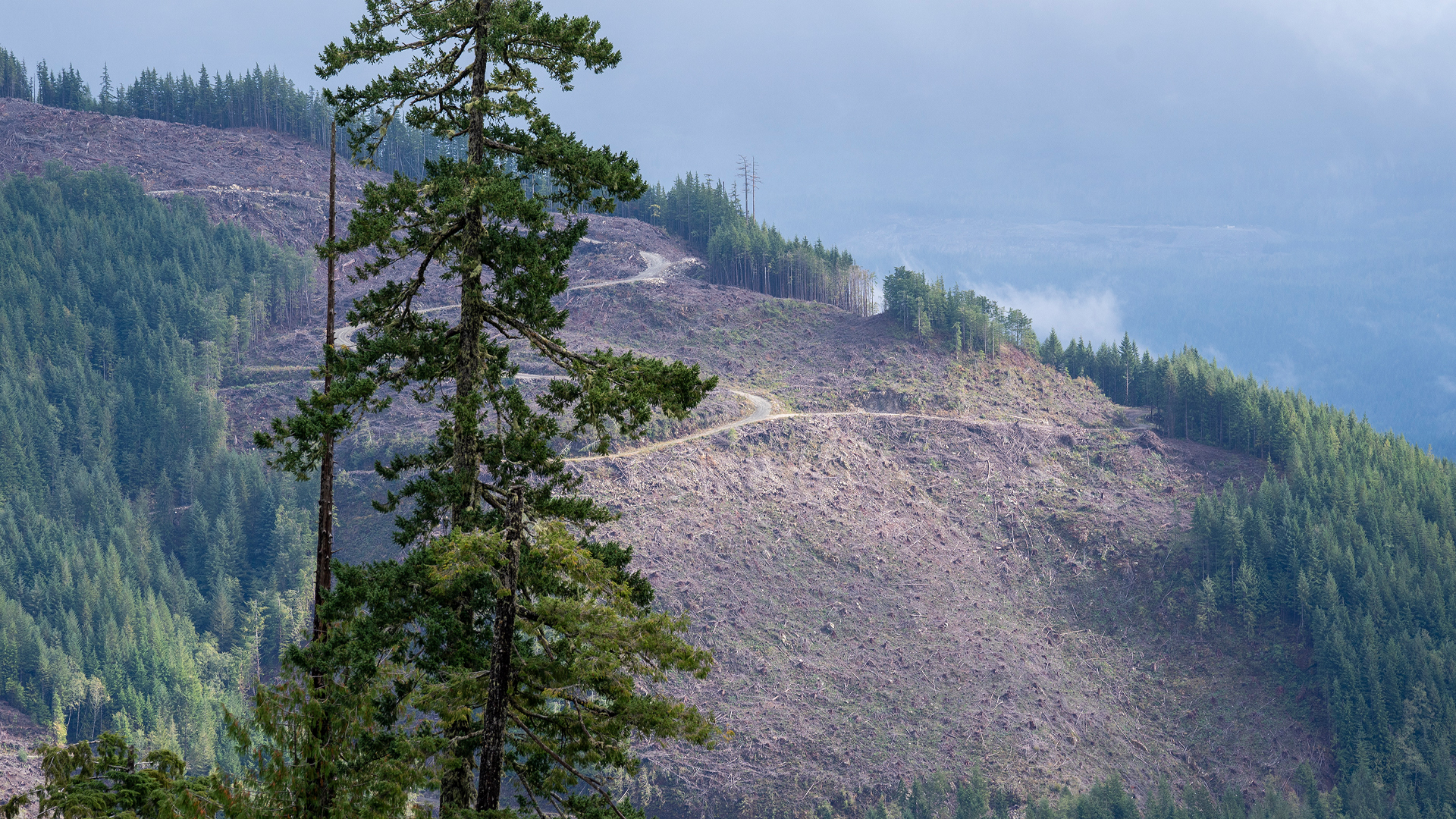
The Canadian logging industry is one of the country’s greatest climate liabilities, with net annual emissions on par with both oilsands operations and the electricity sector. From the atmosphere’s perspective, the effects of these sectors are identical, raising a critical question that lies at the heart of discussions around “natural climate solutions.” Why are emissions from the destruction of the natural world treated differently than emissions from fossil fuels?
One major reason is how we talk about nature – and the erasure of industry’s role in destroying it.
For the first time, at the 2021 climate conference in Glasgow, the international community explicitly placed blame for climate change on the fossil fuel industry. This long-overdue milestone reflects decades of advocates’ clear-eyed focus on the industry’s culpability and the fact that the climate crisis is a harm that is caused by a wrongdoer.
When it comes to nature’s role in the climate fight, however, that same clarity regarding harm and responsibility is missing.
Canada needs to close the “logging loophole” in its boreal forest
“Nature-based solutions” is the catchall term for nature-related climate policies. Part policy descriptor, part marketing jargon, this term applies to many different things from protecting carbon-rich ecosystems to habitat restoration and sustainable agriculture. But the common characteristic is the positioning of nature as an “ally” in a fight against a changing world, a tool to be employed to counter the real drivers of climate change.
What this framing elides, however, is industry culpability. The destruction of nature is itself actively driving climate change with its own emissions footprint and its own cast of responsible parties. It’s like talking about clean-energy solutions without mentioning the fossil fuel industry.
Nature isn’t just implicated as a solution to a fossil fuel-driven problem. Industries such as logging, palm oil extraction, cattle raising and mining are unleashing vast amounts of previously locked-up carbon, with the same atmospheric effect as fossil fuel emissions. Focusing solely on “solutions” erases the fact that about 25 per cent of global emissions come from land use. The logging industry in Canada is responsible for more than 10 per cent of the country’s annual emissions and the near-term carbon removals from tree-planting pale in comparison to logging’s impact.
This isn’t just semantics or petty finger-pointing. The choice of narrative has had profound policy consequences.
First, it has arbitrarily cast emissions from logging and other industries as fundamentally different from those from fossil fuels, even though the emissions are qualitatively indistinct to the atmosphere. Most notably, it has led to the predominance of policies such as offsets, which often treat keeping forests uncut, tree-replanting and other forms of nature protection and restoration as substitutes for reducing use of fossil fuels. Instead, it should be another category of emissions to be directly regulated. Just as you wouldn’t create an offset credit for oil kept in the ground, there’s little justification for doing the same with logging and other sectors.
The tunnel vision around nature as a “solution” has also helped perpetuate myths around industry sustainability, particularly for the logging sector. Canada, for example, can claim to be a champion of “nature-based solutions,” touting its tree-planting program while failing to even recognize that its logging industry is one of its highest-emitting sectors.
Solutions are important. It’s hard to imagine transitioning away from fossil fuels without clean energy, so policies are needed to advance those solutions. But focusing solely on solutions without acknowledging the problem leads to band-aid approaches and the status quo, while taking key options off the table.
In casting nature as a “solution” to the problem of fossil fuels, it also downplays the necessity of ending our reliance on dirty energy, which is why the framing around nature-based solutions has become a darling of the fossil fuel industry.
The Functionary: Kathryn May’s newsletter on the public service
We need to start talking about nature-based emissions, or emissions from the destruction of nature.
Assigning blame to industry actors doesn’t have to mean scorched earth. While there’s no future for the fossil fuel industry in a climate-safe reality, that’s not the case for sectors such as logging. The world will continue to depend on wood products for decades to come. But we can’t continue to pretend that these industries are blameless or that business-as-usual is sustainable. We can talk about achieving climate-friendlier practices, but only if we recognize that extractive industries, just like the fossil fuel sector, don’t have clean hands. That accountability is essential for transformative change.
There’s a word closely related to the avoidance of blame – denial. Denial about fossil fuel-caused climate change delayed meaningful solutions for years. We don’t have time for further industry obfuscation. At the 2023 UN climate conference in the United Arab Emirates, we need to start having the hard conversations about the problems and their causes. Only then can we develop a clear picture of the solutions.










